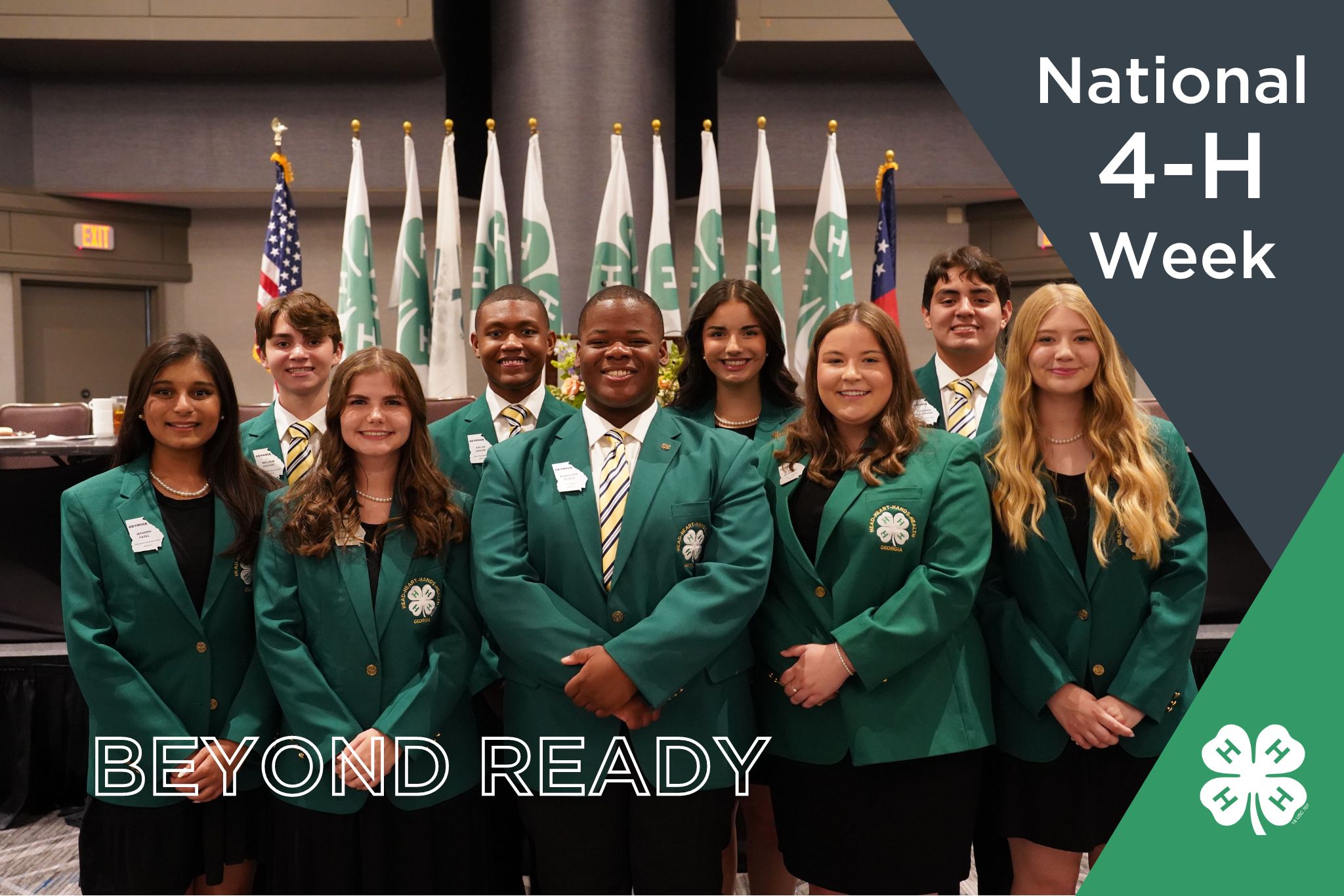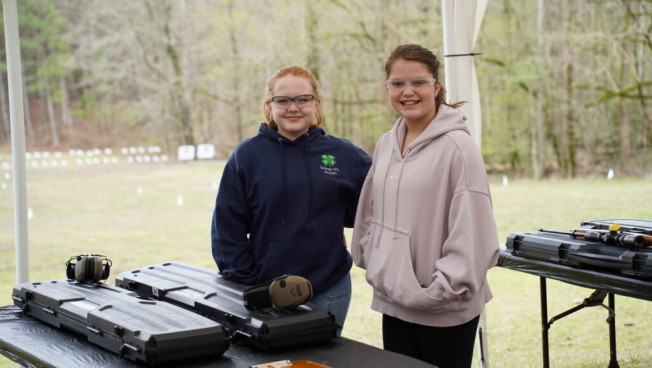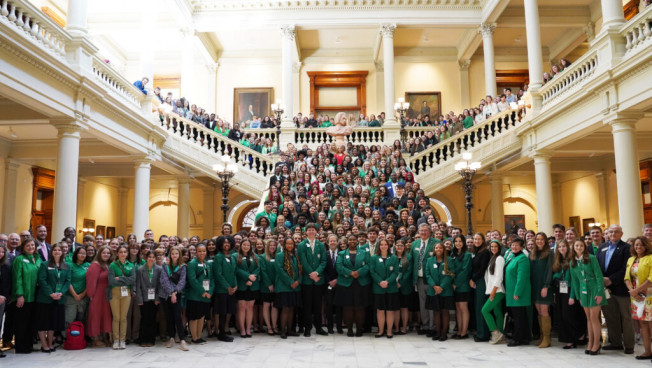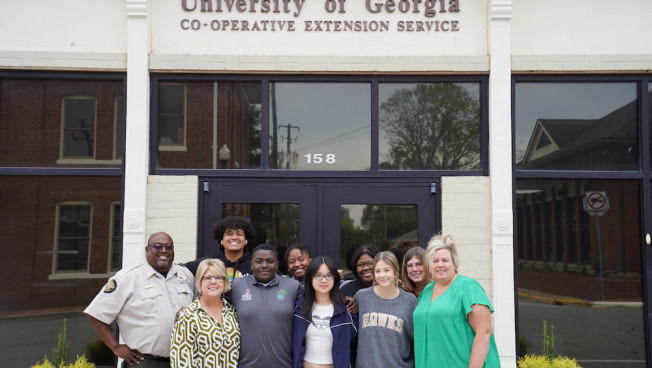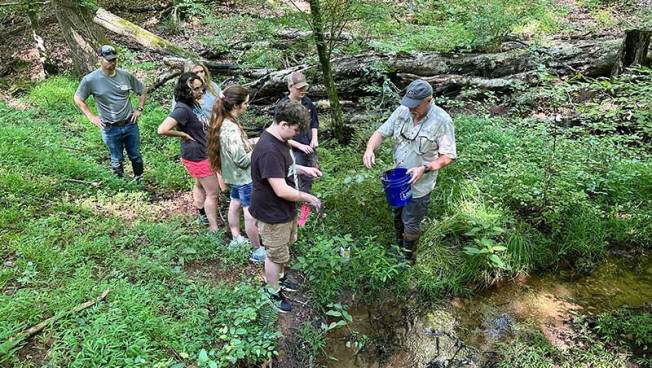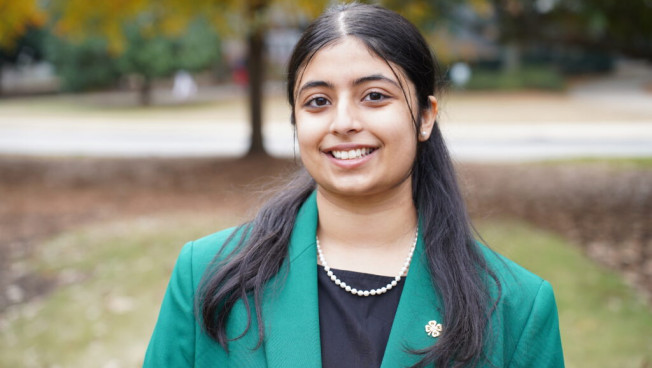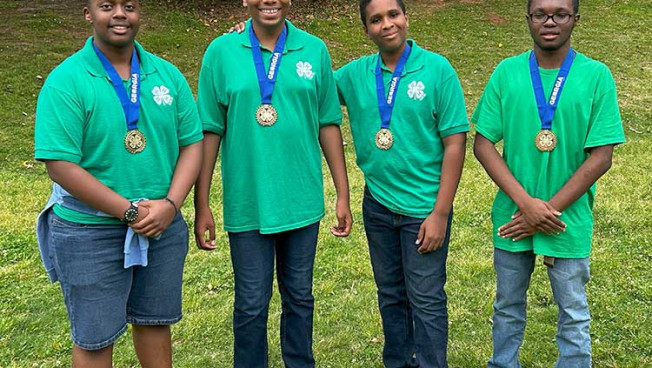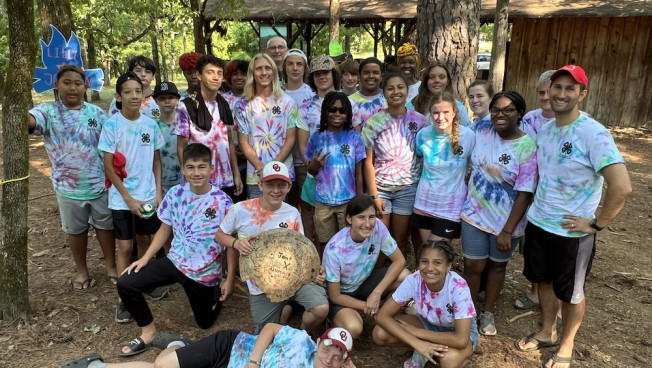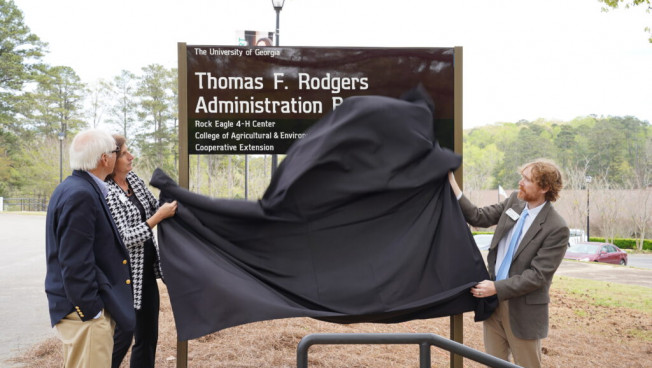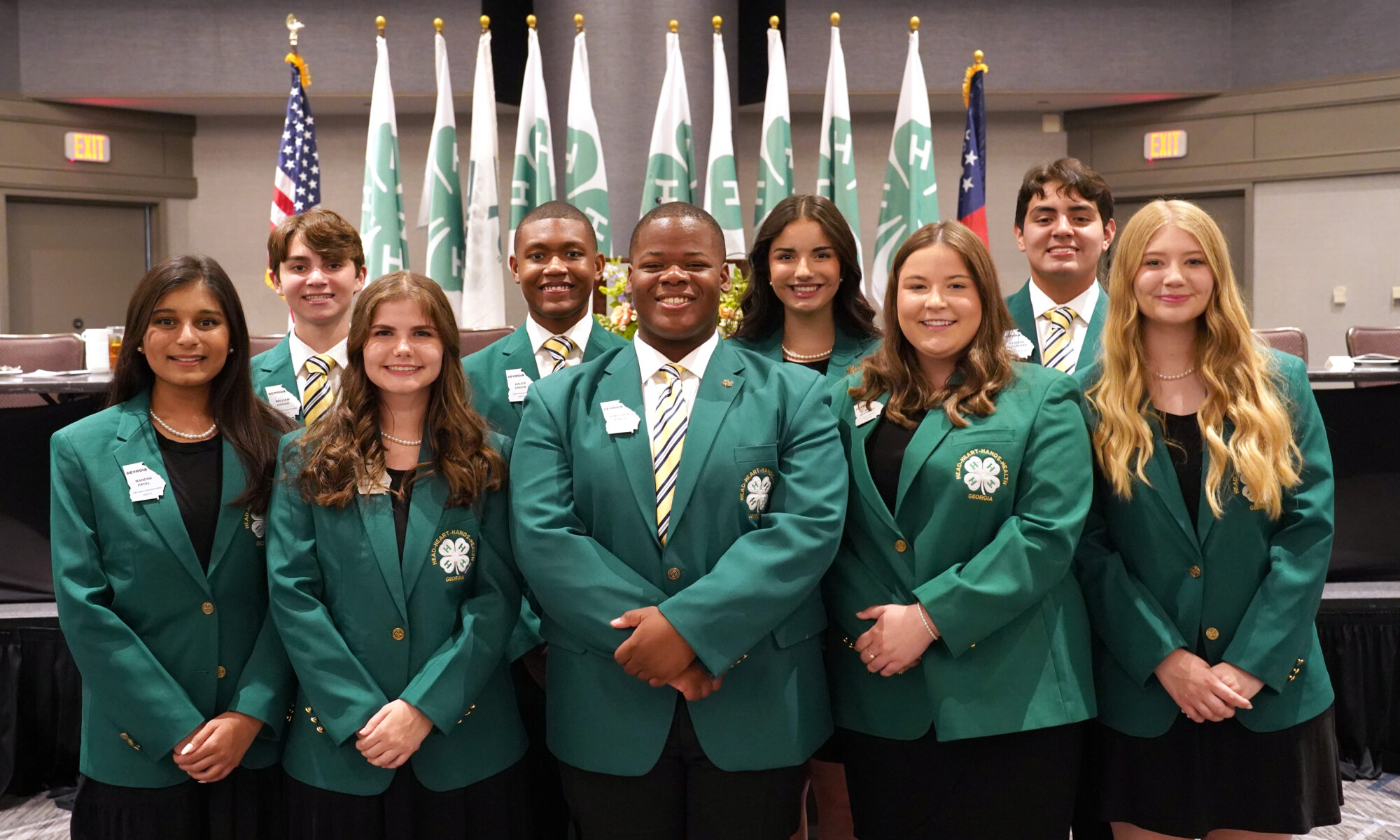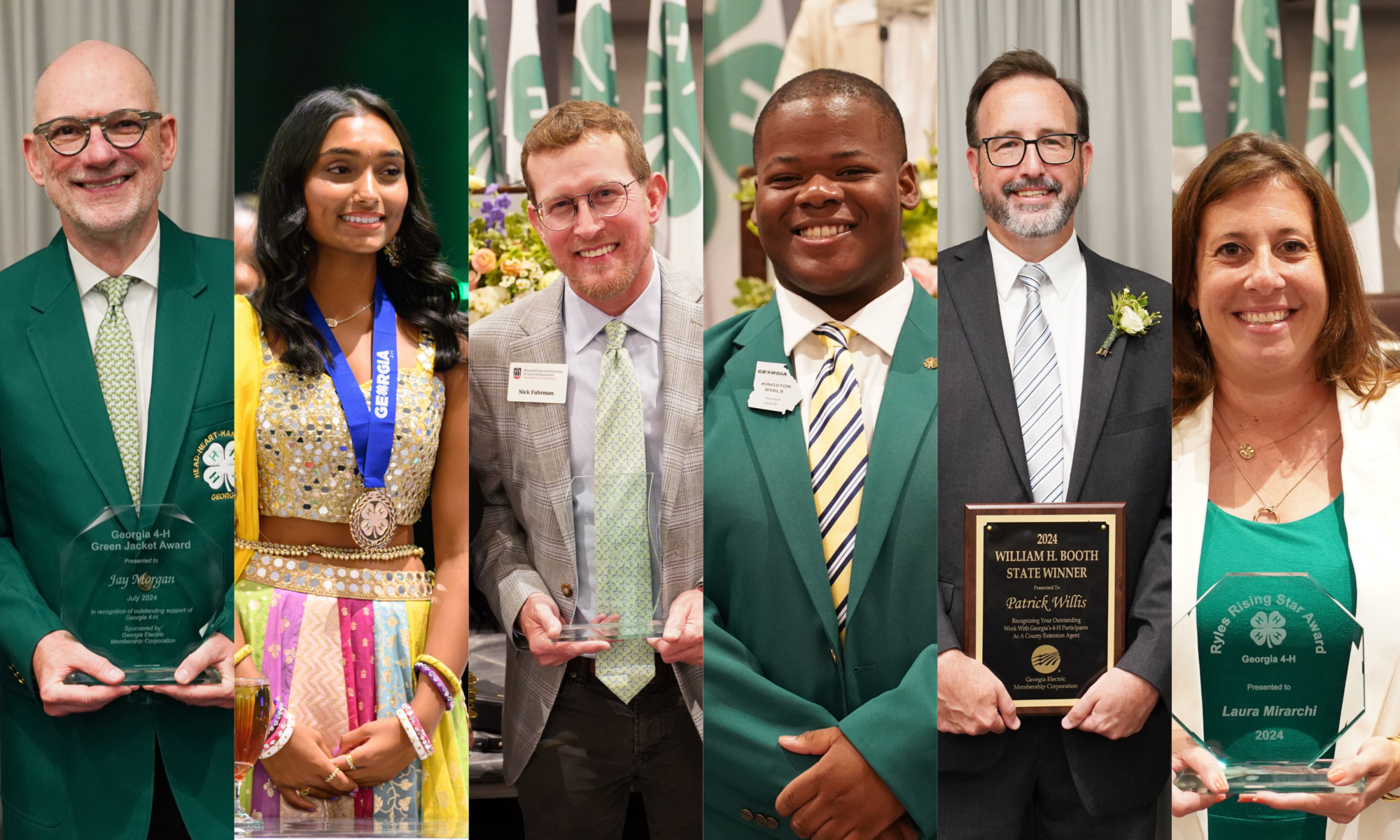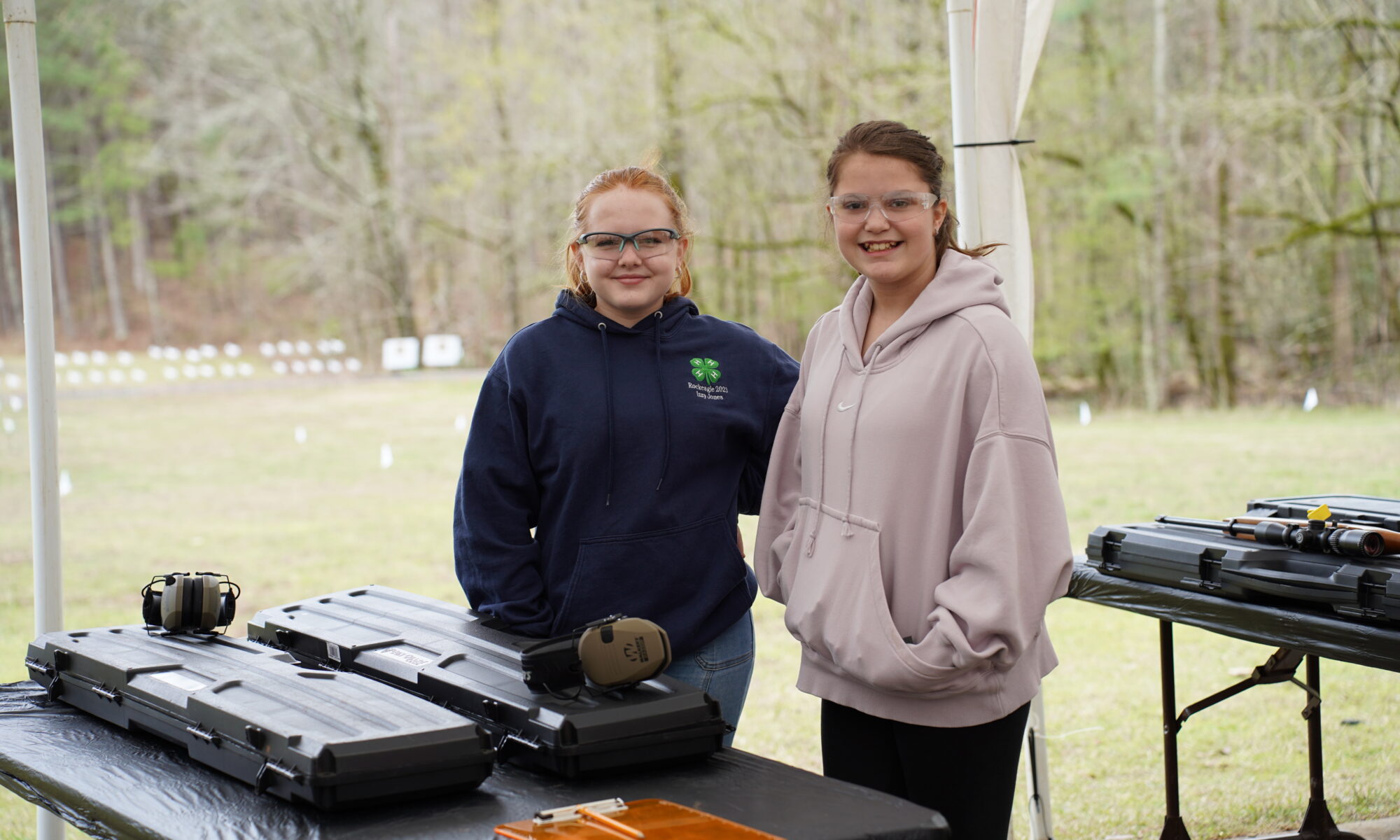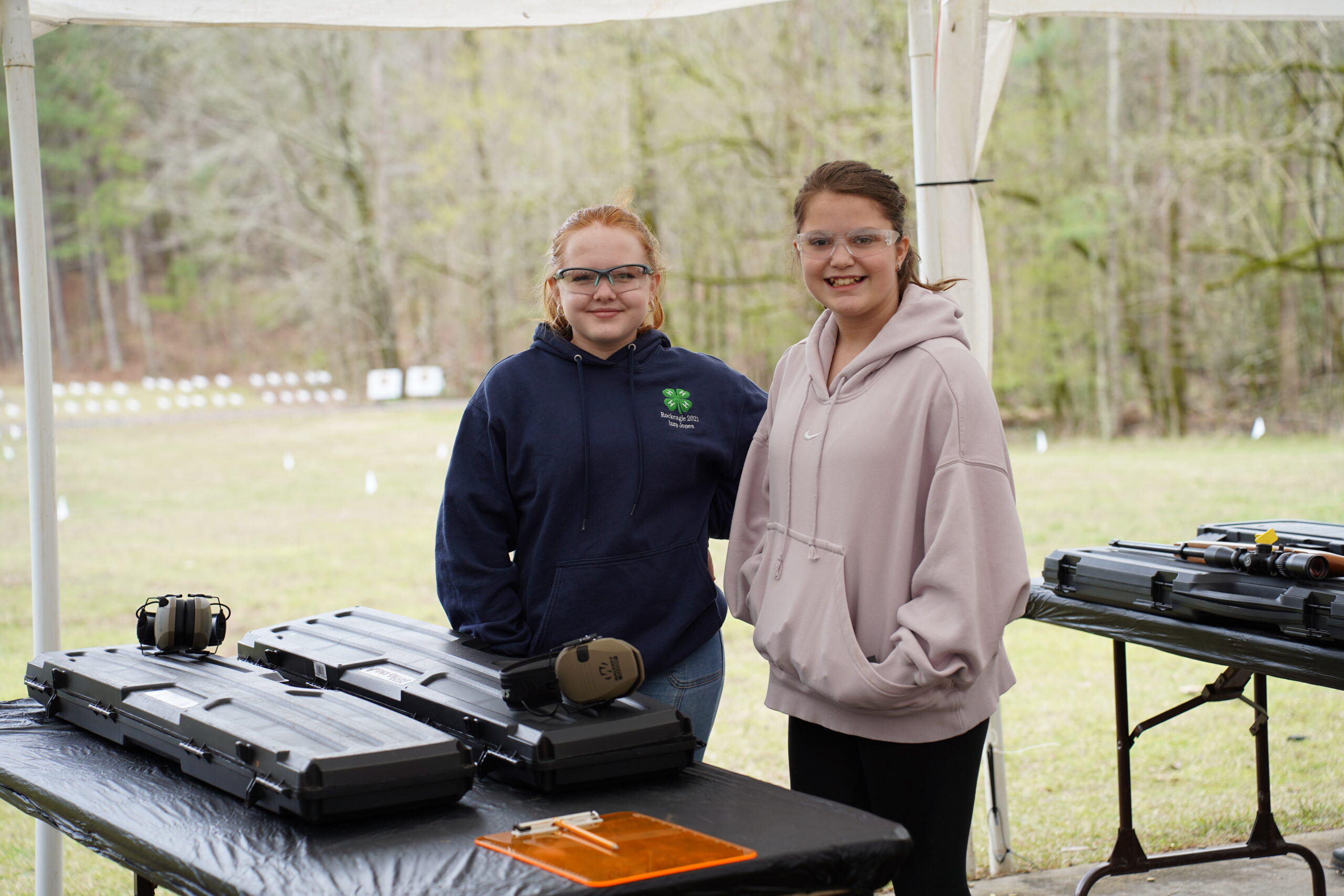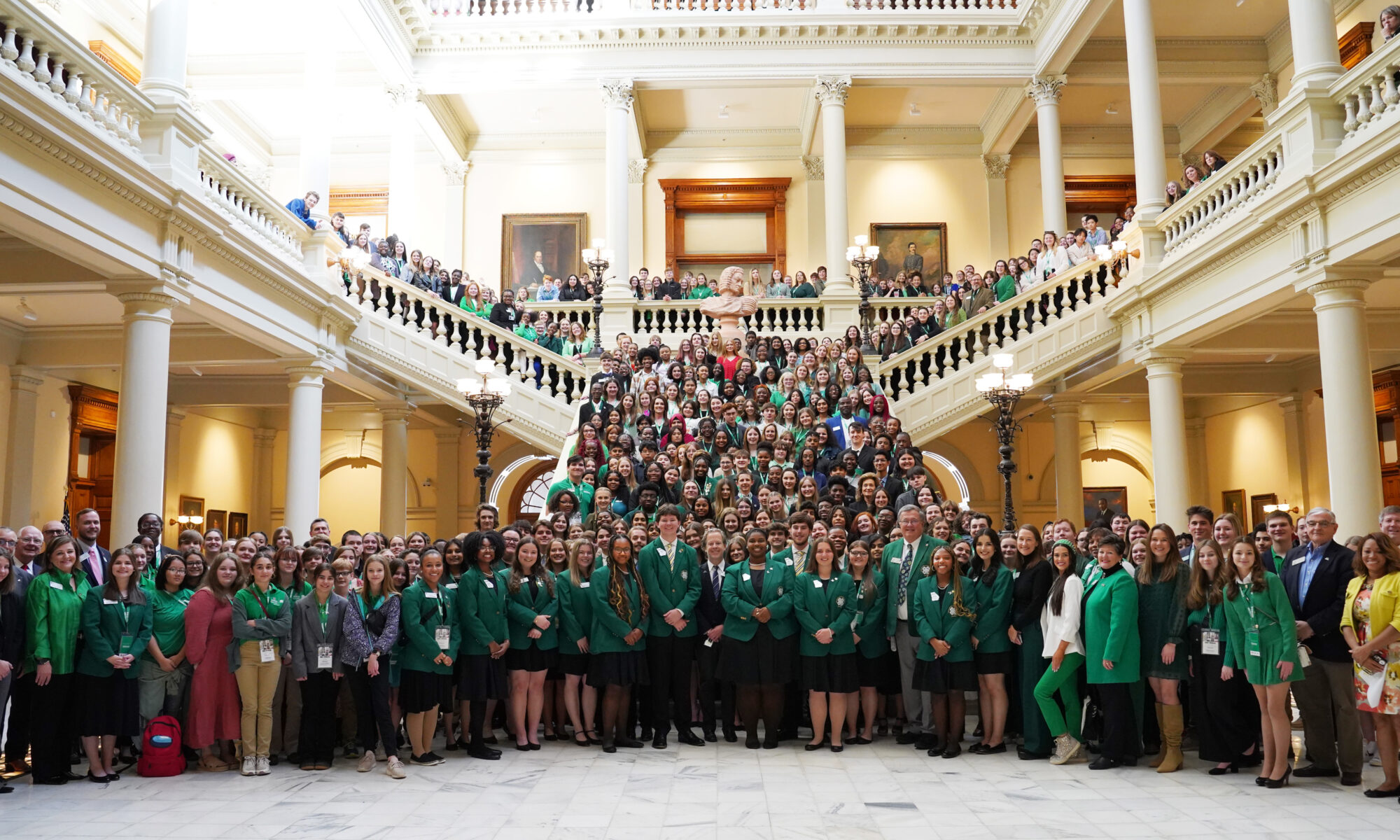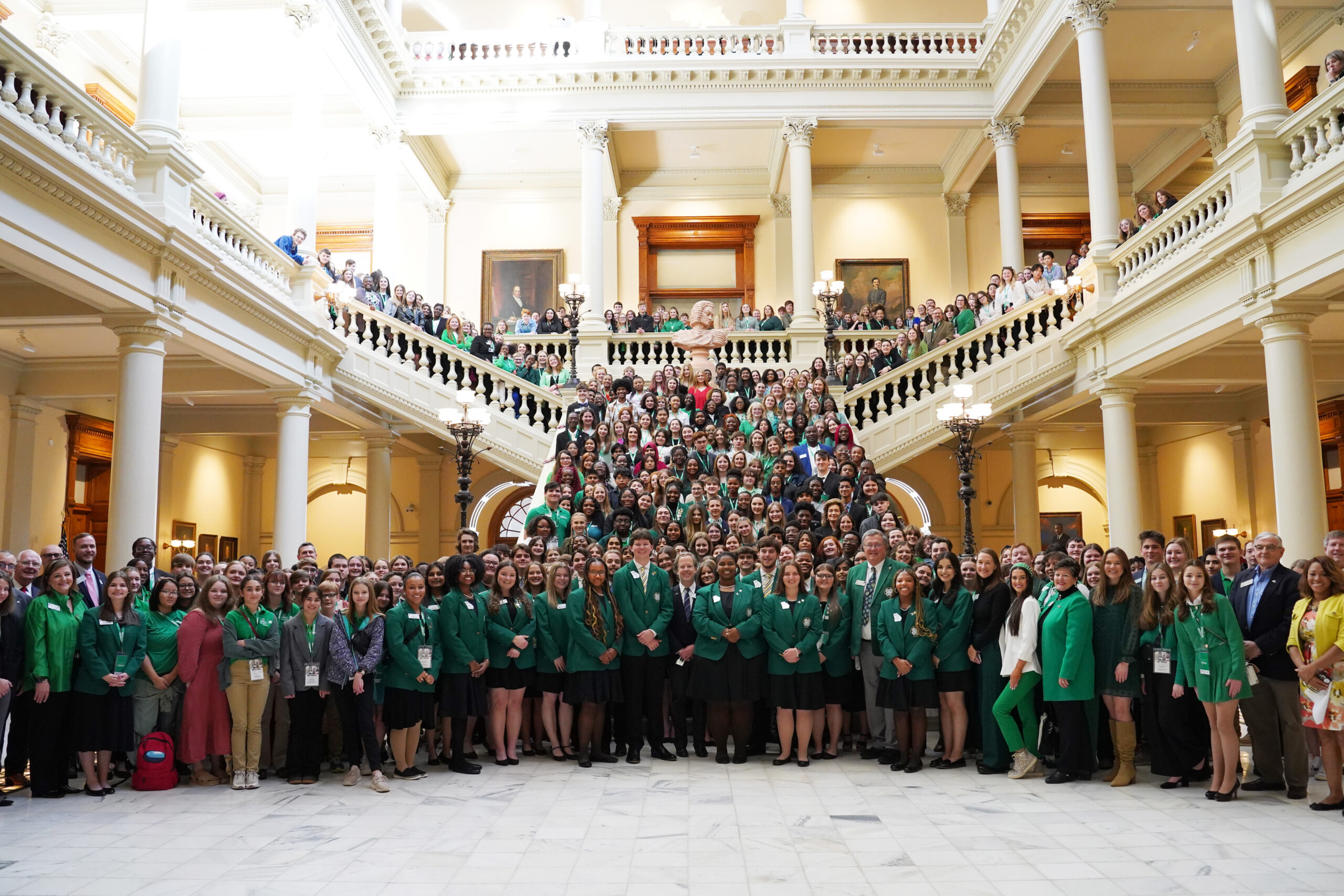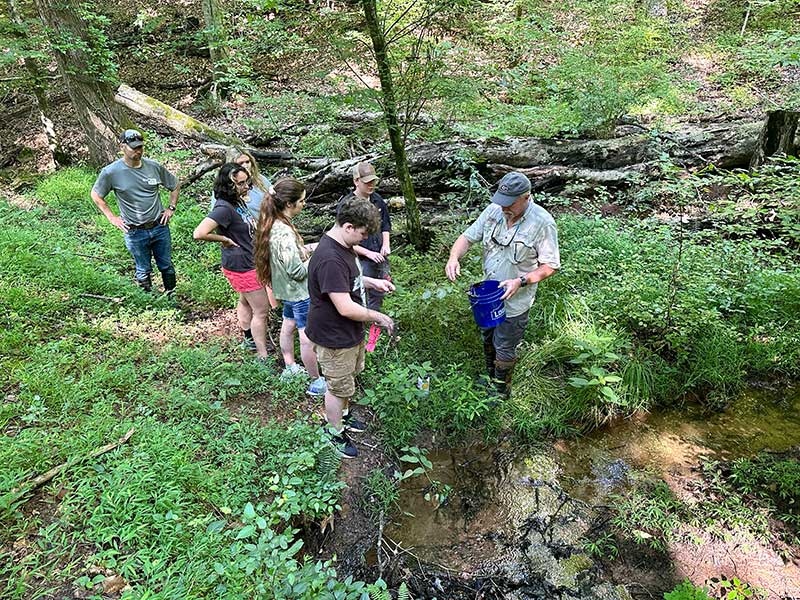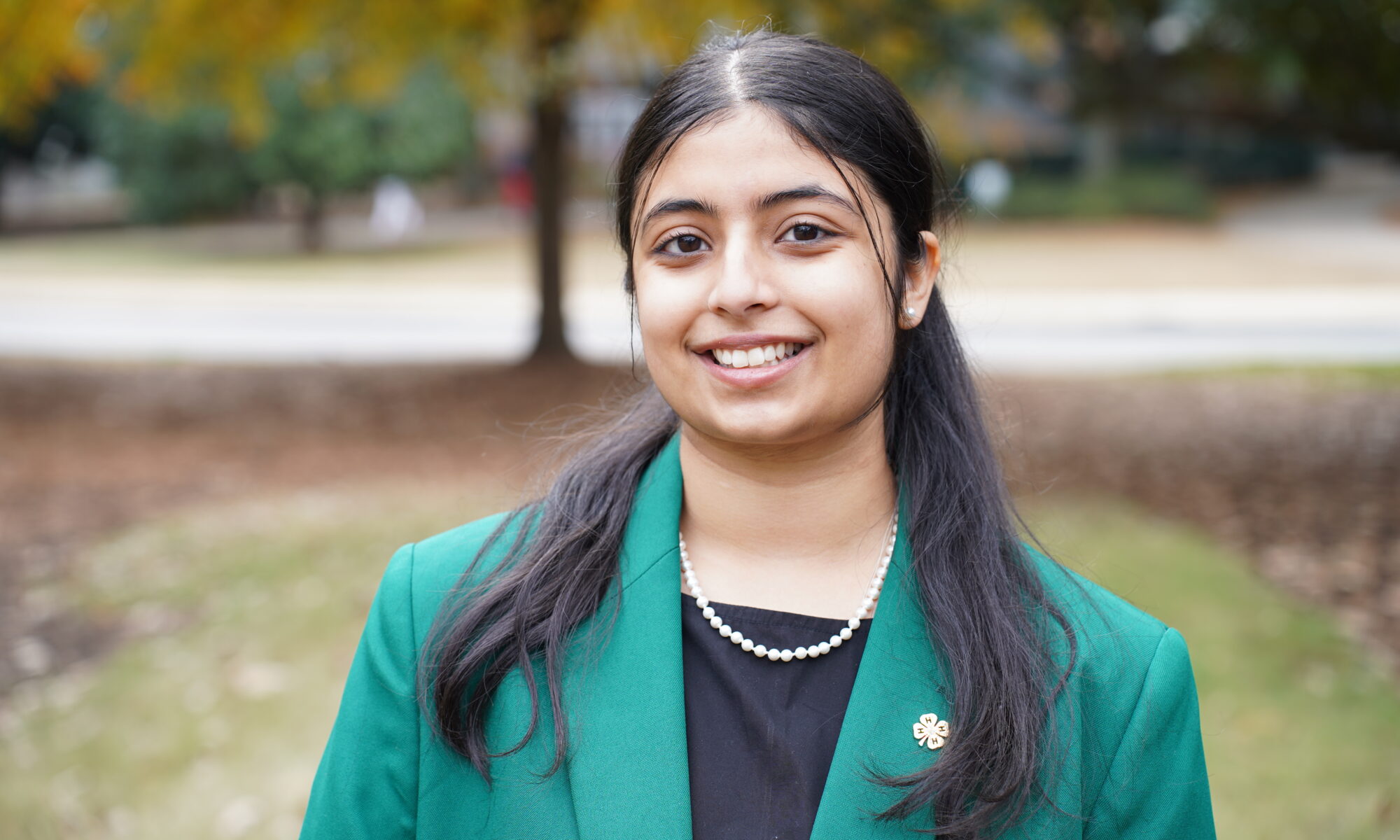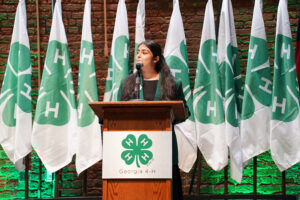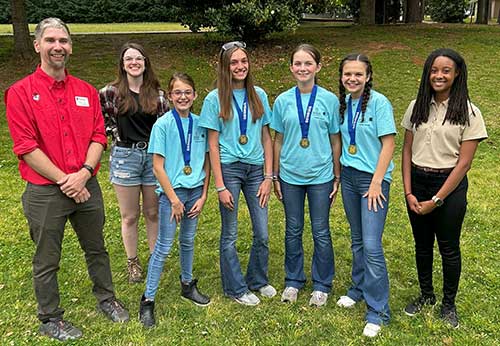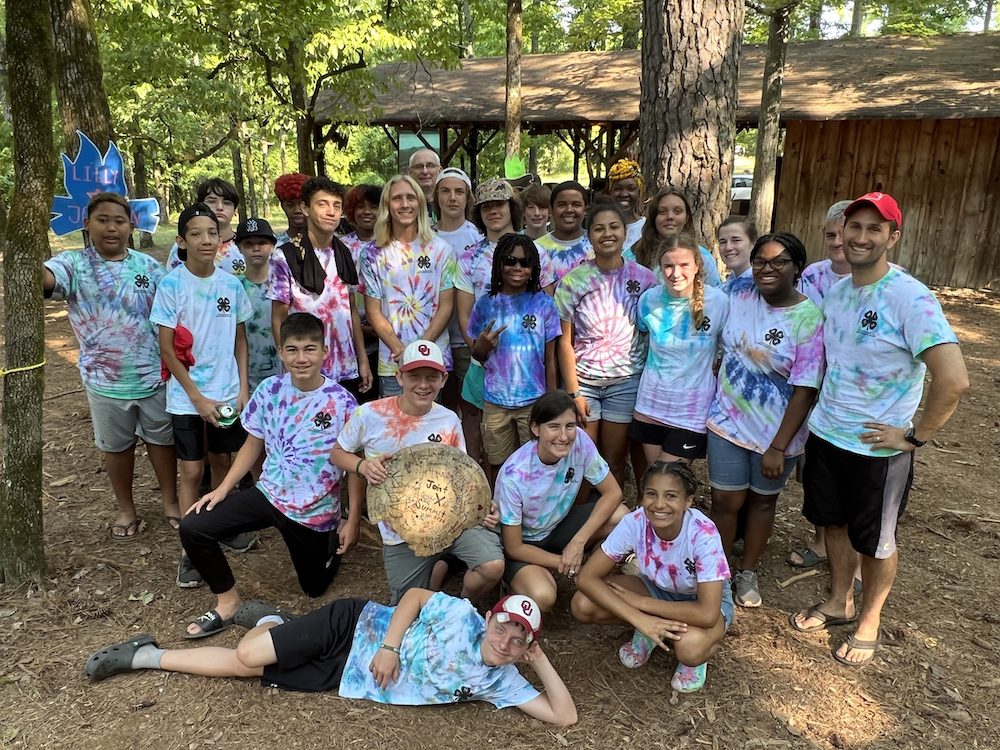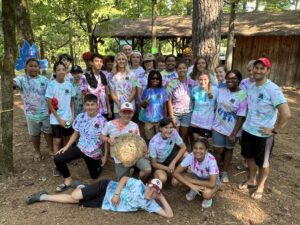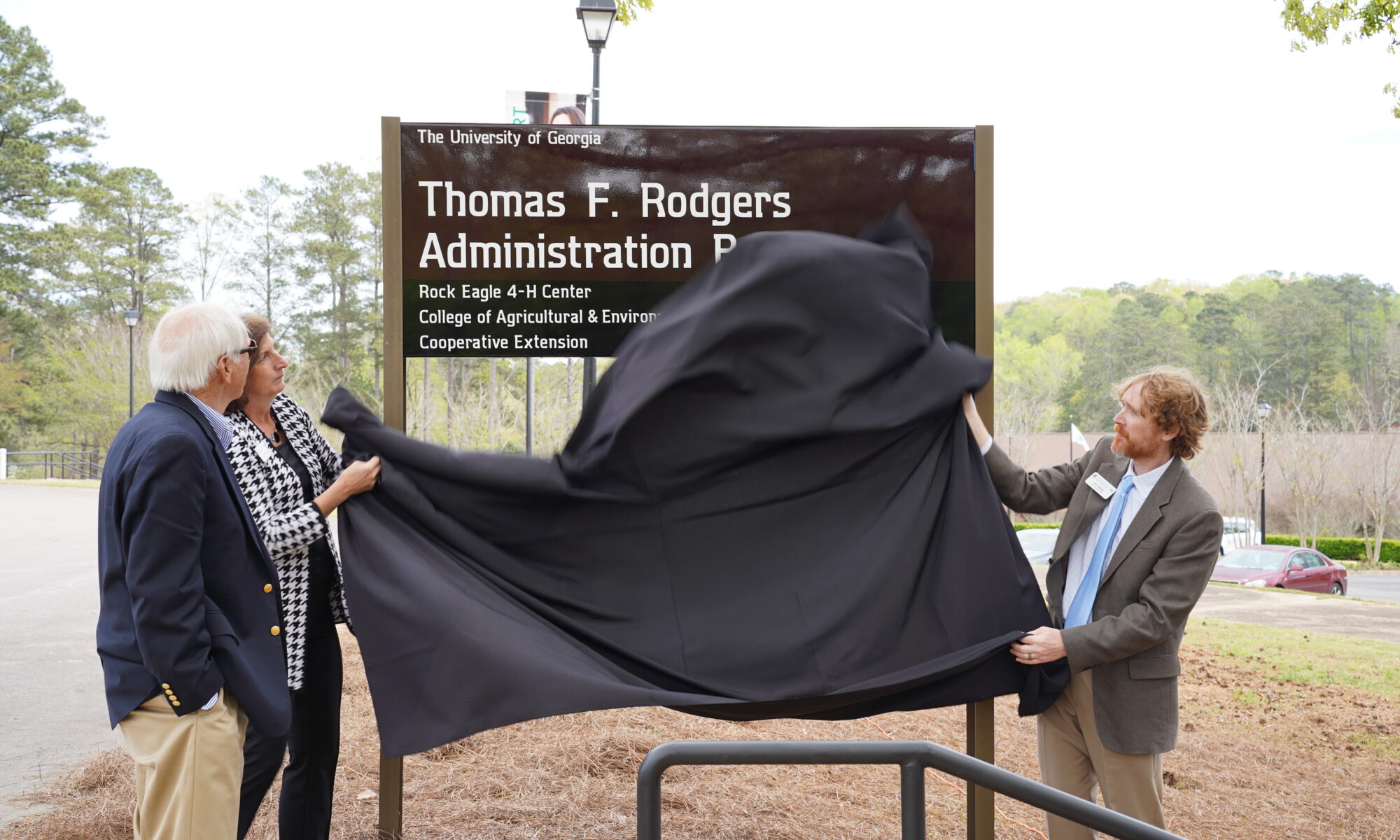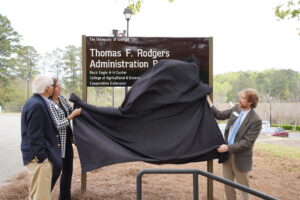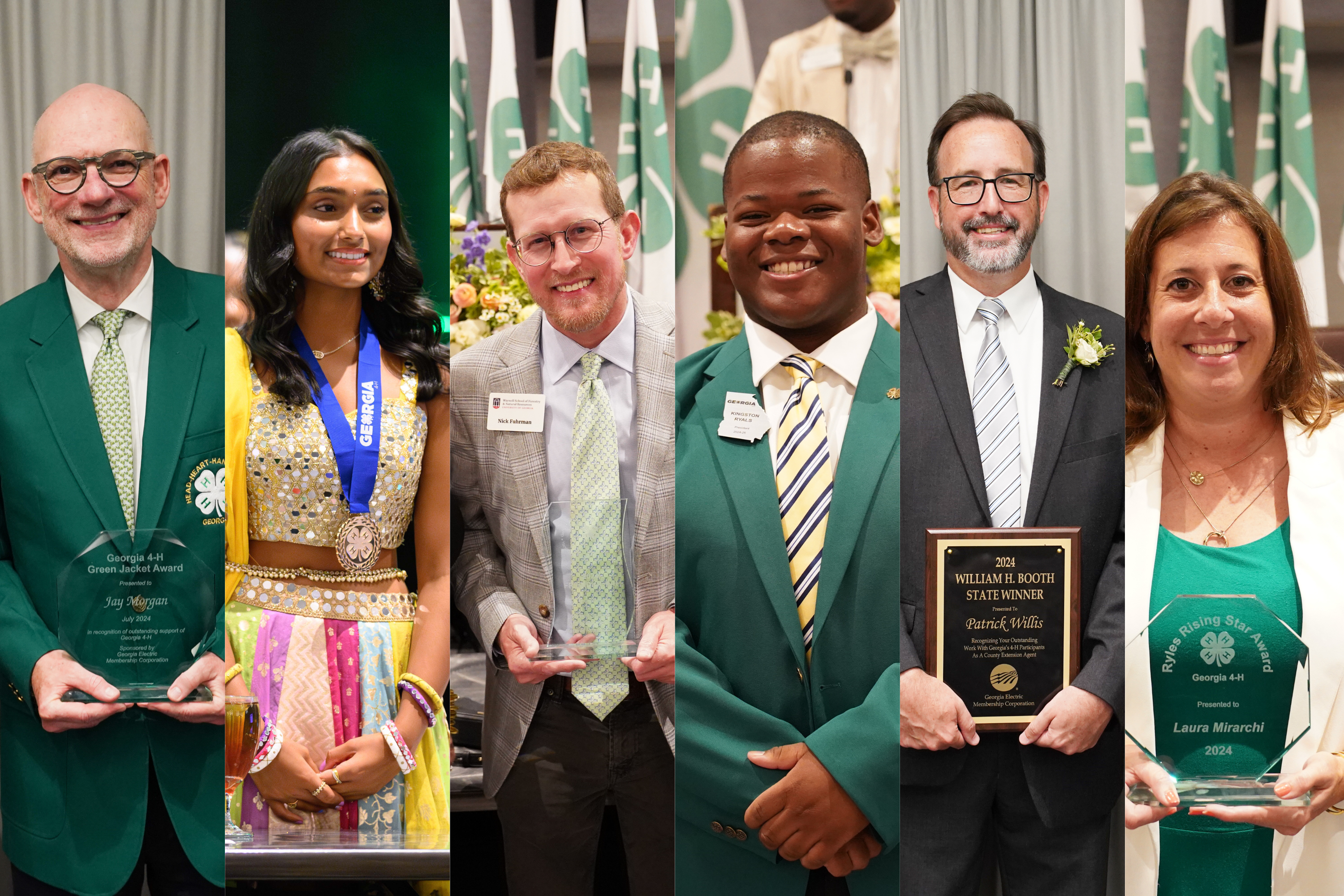
Accomplished 4-H youth and adults who empower them gathered at the 81st Georgia 4-H State Congress in Atlanta July 23-26. State Congress, a week-long event for top 4-H’ers at the Crowne Plaza Ravinia, includes the state-level Project Achievement and Leadership in Action contests. The event also recognizes youth development professionals and community supporters for their contributions to the success of 4-H in Georgia.
Jay W. Morgan, Patrick E. Willis, Laura Mirarchi, and UGA’s Warnell School of Forestry and Natural Resources all received prestigious awards as champions of youth development programming.
More than 200 youth delegates competed in 50 Project Achievement areas and eight youth delegates competed in the Leadership in Action contest during State Congress. Fifty high-scoring individuals – one from each project area – and two Leadership in Action finalists received Master 4-H’er status. Special event Master 4-H’ers from the 2023-24 program year were also recognized at State Congress.
Project Achievement is a core Georgia 4-H program element, empowering young people with leadership, creativity, public speaking, and record keeping skills that will last a lifetime. At the high school level, students choose a project of interest from a list of areas that include agriculture, human development, performing arts, communication, engineering, and workforce preparation. They subsequently research the topic, create and deliver a detailed presentation, and participate in related community service and civic engagement activities. State Congress competition includes individual interviews with qualified professionals who engage with 4-H’ers about their project work.
To view a complete list of State Congress Project Achievement participants, visit this link.
The Leadership in Action competition calls for 4-H’ers to identify a community need and work to meet that need by planning and implementing original projects and initiatives. Competitors then prepare an application packet and participate in interviews at the district level. The 2024 Leadership in Action winners are Lauren Coley from Bleckley County and Sophia Scott from Pickens County.
Coley founded a youth organization called S.P.A.R.K. to address the absence of youth mental health support in her community. More than 20 student speakers presented on various mental health topics, empowering teens to express themselves and connect with others. Scott responded to the mental health crisis among farmers in Pickens County and other rural areas by launching the “Stronger 2gether” project, organizing Farmer Appreciation Days and establishing the Farmer Appreciation Board (FAB). Her efforts reached over 6,000 community members.
Other finalists were Aubrianna Stewart from Bryan County, Coleman Mangham from Tift County, Lilly Lanier from Mitchell County, Tyson Mathis from Oconee County, William Parish from Gordon County, and Winta Ykeallo from Spalding County.
Mirarchi, Troup County Extension Coordinator and 4-H Agent, received the Ryles Rising Star Award. This award recognizes an outstanding 4-H staff member in the first five years of their employment for significant contributions to the success of 4-H. Mirarchi began her 4-H career in 2020 and immediately began navigating the challenges of developing successful youth programming during a global pandemic. She has worked diligently to create impactful relationships with Troup County school administrators, and saw a 100% increase in 4-H participation in 2023. During her short tenure, over 800 youth have experienced hands-on learning opportunities in leadership, healthy living, civic engagement, and agriculture and natural resource-based areas.
Warnell School of Forestry and Natural Resources received the Friend of 4-H Award. The Friend of 4-H Award is presented annually to individuals and organizations that demonstrate outstanding and exemplary contributions to the Georgia 4-H vision and mission. The faculty and staff of Warnell have been instrumental in educating 4-H youth in the areas of conservation and environmental education for more than 30 years. Their specialists orchestrate the 4-H Forestry Field Day and Wildlife judging contests, facilitate coach certifications for adult leaders, host students for visits to campus labs, and co-administer the newly established 4-H Natural Resources Exploration Camp. They play a pivotal role in ensuring that forestry, wildlife, and natural resources initiatives are well-designed, scientifically accurate and aligned with best practices in environmental education. Dr. Nick Fuhrman, Associate Dean for Outreach, accepted this award on behalf of Warnell during State Congress. This award is presented in conjunction with the Georgia Association of Extension 4-H Youth Development Professionals.
Morgan received the 4-H Green Jacket Award, awarded to individuals who have shown outstanding, significant, and ongoing statewide support to 4-H. He grew up as a Talbot County 4-H’er and experienced life-changing leadership opportunities as a district officer and a summer camp counselor at Rock Eagle 4-H Center. He founded the J.L. Morgan Company in 1997 and has spent a successful career as a public affairs and issues management consultant. For more than 40 years, he has provided unwavering support to Georgia 4-H by serving as a trustee on the Georgia 4-H Foundation Board, a two-time Board chairman, an active volunteer and an advocate for positive youth development. Morgan is committed to the mission of Georgia 4-H and the spirit of the Green Jacket award, graciously sponsored by the Georgia Electric Membership Corporation.
Willis, Berrien County Extension Coordinator and 4-H Agent, received the William H. Booth Award at the 4-H Annual Banquet. This award recognizes 4-H Extension agents for outstanding career achievements and strong commitment to community support. Throughout his 26-year career, Willis has garnered numerous accolades and awards on the national, state, and district levels, including the prestigious National Excellence in Peer Professional Development and the GAE4-HA Professional Achievement Award. He has coached nine 4-H youth to achieve Master status in the State 4-H Congress experience and has supported 22 4-H youth in their campaign, election, and year of service as a state or district 4-H officer. Modeling for the youth he leads, Willis is committed to local collaborative efforts that serve his community.
The William H. Booth Award is presented in conjunction with the Georgia Association of Extension 4-H Youth Development Professionals and the Georgia Electric Membership Corporation. Additional William H. Booth Award finalists include Lauren Boykin from Bulloch County, Wanda McLocklin from Barrow County, and Dinah Rowe from Heard County.
Leaders in the camping program and 4-H center leadership also received recognition during State Congress. The 2024-2025 Georgia 4-H Board of Directors were inducted into their positions of leadership, and the 2023-2024 Board of Directors were honored for their year of service.
State Congress is made possible by generous contributions from organizations that support positive youth development in Georgia. Major sponsors include Georgia’s EMCs, Georgia Power, Georgia 4-H Foundation, and the Georgia Master 4-H Club. Georgia 4-H Foundation Pillar and Presenting sponsors include Harley Langdale Jr. Foundation, Inc., Premium Peanut, Kelly Loeffler, META, and Chemours.
Georgia 4-H empowers youth to become true leaders by developing necessary life skills, positive relationships, and community awareness. As the premier youth leadership organization in the state, 4-H reaches more than hundreds of thousands of people annually through UGA Extension offices and 4-H facilities.
For more information about Georgia 4-H, contact your local University of Georgia County Extension Office or visit www.georgia4h.org.
